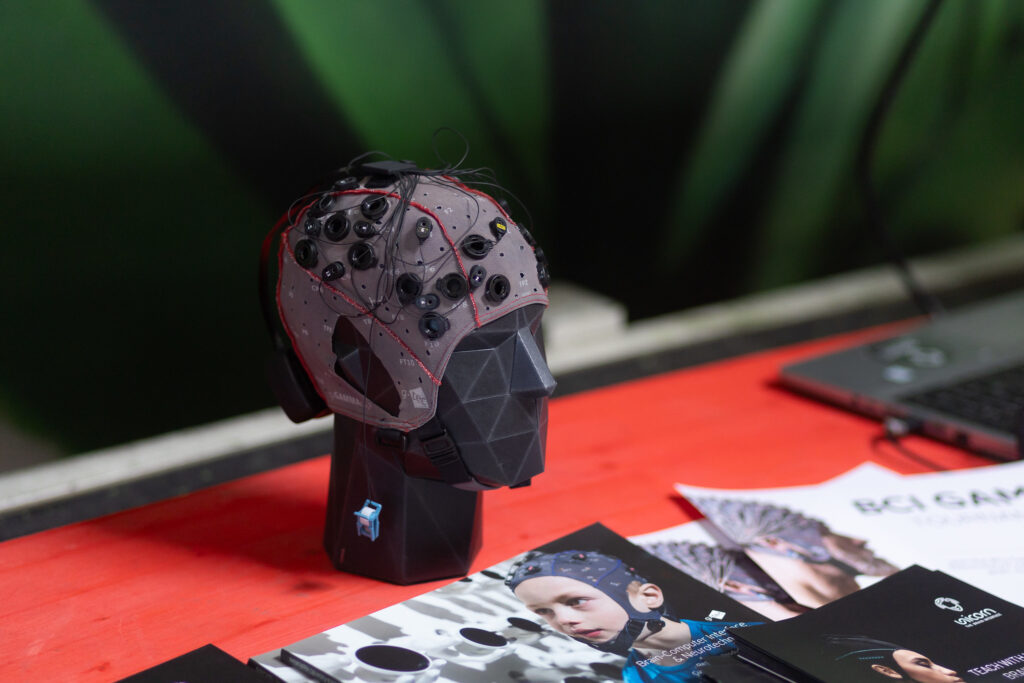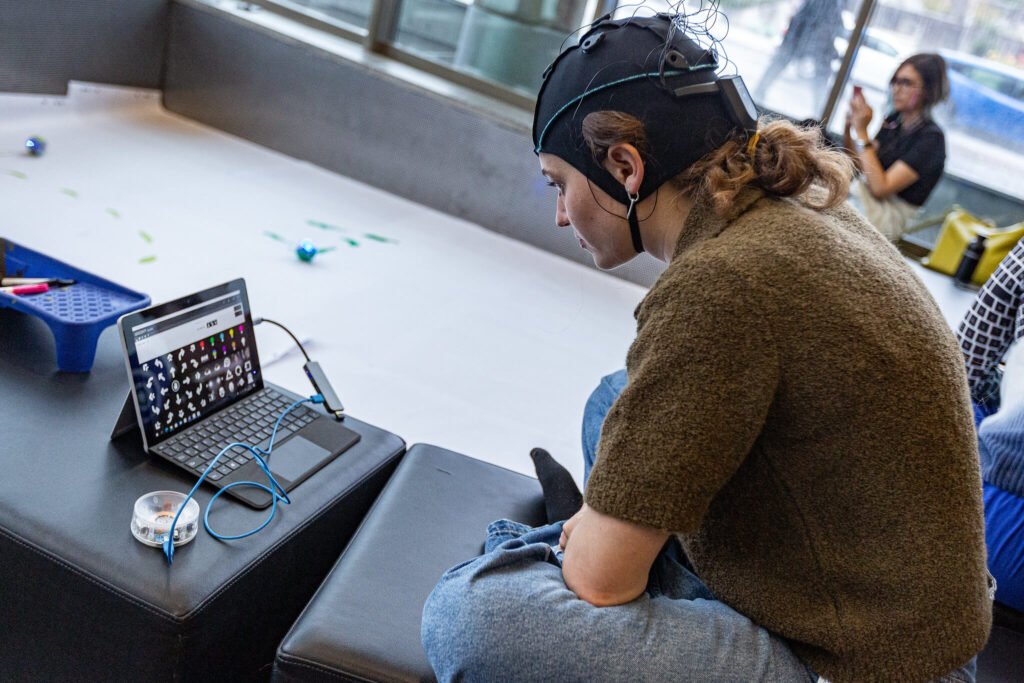Imagine controlling your computer with your thoughts. That’s the promise of neurotechnology, a rapidly growing field merging the brain with tech. This isn’t science fiction anymore. Companies are developing mind-controlled devices to treat diseases, manage chronic pain, and even revolutionize social interaction. For investors, this translates to exciting opportunities. This article tiers the best neurotech stocks based on their pure play exposure. Our ranking methodology considers business model, revenue concentration, and vertical integration.

Tier 1: Pure-Play Neurotech Companies
These are pure-play neurotech companies that derive a majority of their revenue from this space. Investors who want the full upside – and risk – can consider these neurotech stocks.
Note: While there are other innovative companies in this space, many are currently private. As the neurotech industry matures, more will likely go public, offering additional investment opportunities.
Neuronetics, Inc. (NEU)
Neuronetics, Inc. (NEU) is a leader in neuromodulation therapy for mental health conditions, a fast growing niche in neurotech.
Neuronetics, Inc. occupies a specific niche within the neurotech space. They focus on devices that treat psychiatric disorders using transcranial magnetic stimulation (TMS), a non-invasive approach. Their system, NeuroStar, is the most established TMS option for depression and is widely covered by insurance. This strong position offers a foundation for NEU’s growth.
There’s significant untapped potential for TMS treatment. Many patients haven’t been exposed to TMS as a viable option, and NEU can grow by just spreading awareness. In March 2024, they also secured the first-ever FDA clearance for TMS as a treatment for depression in adolescents, which opened a new patient pool.
Currently, NEU focuses on a specific treatment modality within neurotech. However, the market for neurotech solutions in mental health is expanding rapidly. NEU is positioned well to capture this growth, as they possess vast amounts of clinical data from TMS use, which can fuel further R&D. Also, while NEU currently focuses on TMS for mental health, there’s potential for them to branch into other neurological areas as the broader neurotech field develops.
NeuroOne Medical Technologies Corp (NMTC)
NeuroOne (NMTC) focuses on developing thin-film electrode technology for neuromodulation and brain mapping.
NeuroOne focuses on improving surgical outcomes for neurological disorders. They’re starting with epilepsy, a large and growing market, but their technology can also be used to treat Parkinson’s disease and chronic pain. What sets them apart is their unique thin-film electrodes. Compared to traditional electrodes, these are less invasive and can record brain activity in higher definition. Their OneRF Ablation System is also the first FDA-cleared device that can both record brain activity and remove problematic tissue.
NeuroOne invests heavily in R&D, exploring new uses for its technology in areas like pain treatment and spinal cord stimulation. The company also has a promising drug delivery program that could grow into a significant revenue stream. Partnerships, like the one with Zimmer Biomet, help them get their innovations to patients faster.

Tier 2: Medical Device Makers with Neurotech Divisions
These are established medical device companies with growing neurotech divisions. Investors who want a more balanced approach can consider these neurotech stocks.
Boston Scientific Corporation (BSX)
Boston Scientific Corporation (BSX) is a major medical device company with a growing neurology division.
Boston Scientific Corporation is an established medical device maker with a growing interest in neuromodulation. This technology uses electrical stimulation to manage chronic pain and neurological disorders like Parkinson’s and chronic pain. Think of these devices like smart pacemakers for the brain or spinal cord. They send tiny electrical signals to specific areas to help control pain or manage symptoms. These devices can be customized for each person, tuned to treat their specific needs. BSX is a well-known company in the medical field, and doctors trust their devices. They have a strong reputation and track record, and are well positioned to bring neurotech products to adoption.
Medtronic plc (MDT)
Medtronic plc (MDT) offers deep brain stimulation devices for neurological disorders, among other medical devices.
Medtronic is a medical device giant with decades of experience and a growing focus on neurotech They have a growing range of neurotech solutions for chronic pain, movement disorders, brain conditions, and spinal conditions. What sets Medtronic apart is their global network and resources, with a reach that extends to over 150 countries. This wide reach positions them for significant growth as neurotech solutions become more widely adopted.
Abbott Laboratories (ABT)
Abbott Laboratories (ABT) develops neuromodulation devices for chronic pain and movement disorders.
Abbott is another major player in the neuromodulation market, alongside Medtronic and Boston Scientific. Abbott also has a broad portfolio of solutions for various neurological disorders (chronic pain, Parkinson’s, etc.). What sets it apart is an emphasis on smaller, less invasive, and more personalized devices. Their research really aims to improve the patient experience and quality of life with these technologies. For example, Abbott is pioneering the development of closed-loop neuromodulation systems. These systems use sensors to monitor brain activity in real-time and automatically adjust stimulation parameters in response.
Tier 3: Tech Giants with Neurotech Ambitions
These established giants have expressed ambitions to pursue neurotech, and offer more stable investment options. Investors who want a more cautious approach can consider these neurotech stocks.
Alphabet (GOOG)
Alphabet (GOOG) invests in neurotech through its subsidiary Verily Life Sciences and its venture capital arm.
Alphabet’s neurotech involvement spans healthcare innovation through Verily Life Sciences and cutting-edge AI research through Google. Verily, Alphabet’s subsidiary, focuses heavily on practical healthcare products and tools. These include:
- Liftware, a stabilizing spoon designed to help those with hand tremors;
- Debug, a project researching the use of sterile mosquitoes to combat diseases like Zika;
- and Baseline, a project collecting massive amounts of human health data to aid in future neurological research.
Google’s powerful AI research arm is being applied to neurotech in several ways too. For example, Google AI is being used to improve the translation of brain signals into actions in brain-computer interfaces (BCIs). This will be essential for advanced neural prosthetics and communication devices. Their AI algorithms also help analyze vast amounts of medical imaging data (MRI, fMRI) to discover patterns associated with neurological disorders, leading to earlier diagnosis and treatment.
Meta Platforms Inc. (META)
Meta Platforms Inc. (META) invests heavily in brain-computer interface research for the Metaverse.
Meta Platforms Inc., while not a central neurotech player yet, has expressed strong interest in the potential of brain-computer interfaces (BCIs). Their approach appears unique due to a focus on social interaction within their Metaverse concept. This emphasis on virtual social connection separates them from companies aiming for medical applications of neurotech. Also, Meta’s massive user base could aid in the adoption of successful BCI technology. Their commitment to non-invasive interfaces, potentially involving headsets that read brainwaves, could also make their technology more accessible to a wider audience. However, it’s crucial to remember that Meta is still in the initial phases of neurotech development, having acquired neural interface startup CTRL-Labs in 2019. The future success of their approach remains uncertain.
Private Neurotech Companies to Watch
These companies are not publicly traded (yet). But some of their innovations are so groundbreaking that it’s absolutely worth it for investors to start paying attention to them sooner, rather than later. These are the private neurotech companies to watch, ordered in alphabetical order.
- Blackrock Neurotech: Leader in brain-computer interfaces for medical research and advanced neurological therapies.
- Kernel: Creates non-invasive brain-computer interfaces for everyday use in communication and entertainment.
- Neuralink: Develops high-bandwidth brain implants for medical restoration with a long-term vision of human-computer symbiosis.
- Paradromics: Works on high-bandwidth brain implants specifically designed to restore movement and communication abilities.
- Synchron: Develops brain-computer interfaces to help paralysis patients control digital devices with their mind.
—
Neurotechnology is a young field, but it’s advancing fast. Breakthroughs in brain-computer interfaces, AI-powered analysis, and tiny, precise devices are happening all the time. Investing in neurotech carries risk, but the potential for treating diseases and improving quality of life is undeniable. The companies discussed in this article are just the tip of the iceberg. As research progresses, new players will emerge, and existing ones may change their focus. Staying up-to-date on the latest developments is key to smart investing in this space.

